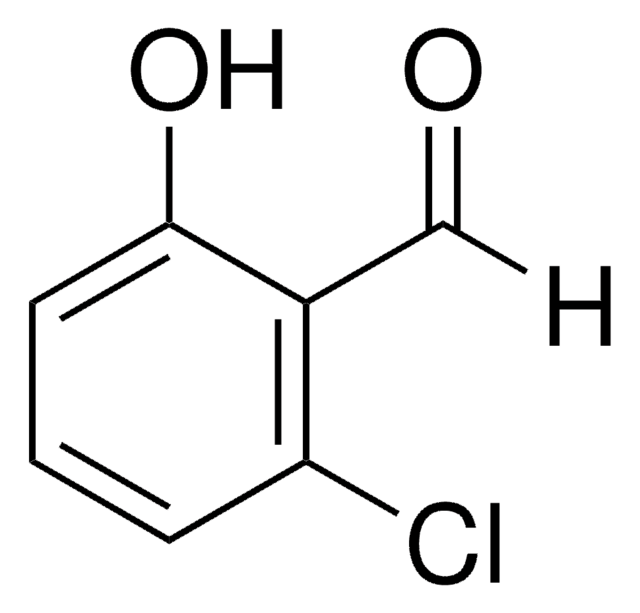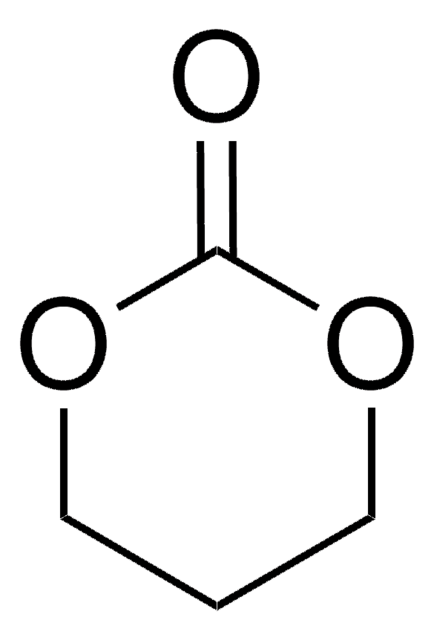G1796
Glycolide
≥99%
Synonyme(s) :
1,4-Dioxane-2,5-dione
About This Item
Produits recommandés
Niveau de qualité
Pureté
≥99%
Pf
82-86 °C (lit.)
Conditions d'expédition
dry ice
Température de stockage
−20°C
Chaîne SMILES
O=C1COC(=O)CO1
InChI
1S/C4H4O4/c5-3-1-7-4(6)2-8-3/h1-2H2
Clé InChI
RKDVKSZUMVYZHH-UHFFFAOYSA-N
Vous recherchez des produits similaires ? Visite Guide de comparaison des produits
Catégories apparentées
Description générale
Application
- Porous PGLA microsphere scaffolds are used in bone repair applications.
- Encapsulated PGLA nanoparticles can be used in drug delivery and tissue engineering applications. Polymeric micro/nanoparticles made from PLGA have gained significant interest for their appealing characteristics, including biodegradability, biocompatibility, prolonged drug release, and safeguarding the drug against degradation.
Mention d'avertissement
Warning
Mentions de danger
Conseils de prudence
Classification des risques
Acute Tox. 4 Oral - Eye Irrit. 2
Code de la classe de stockage
11 - Combustible Solids
Classe de danger pour l'eau (WGK)
WGK 3
Point d'éclair (°F)
Not applicable
Point d'éclair (°C)
Not applicable
Équipement de protection individuelle
dust mask type N95 (US), Eyeshields, Gloves
Certificats d'analyse (COA)
Recherchez un Certificats d'analyse (COA) en saisissant le numéro de lot du produit. Les numéros de lot figurent sur l'étiquette du produit après les mots "Lot" ou "Batch".
Déjà en possession de ce produit ?
Retrouvez la documentation relative aux produits que vous avez récemment achetés dans la Bibliothèque de documents.
Les clients ont également consulté
Notre équipe de scientifiques dispose d'une expérience dans tous les secteurs de la recherche, notamment en sciences de la vie, science des matériaux, synthèse chimique, chromatographie, analyse et dans de nombreux autres domaines..
Contacter notre Service technique













